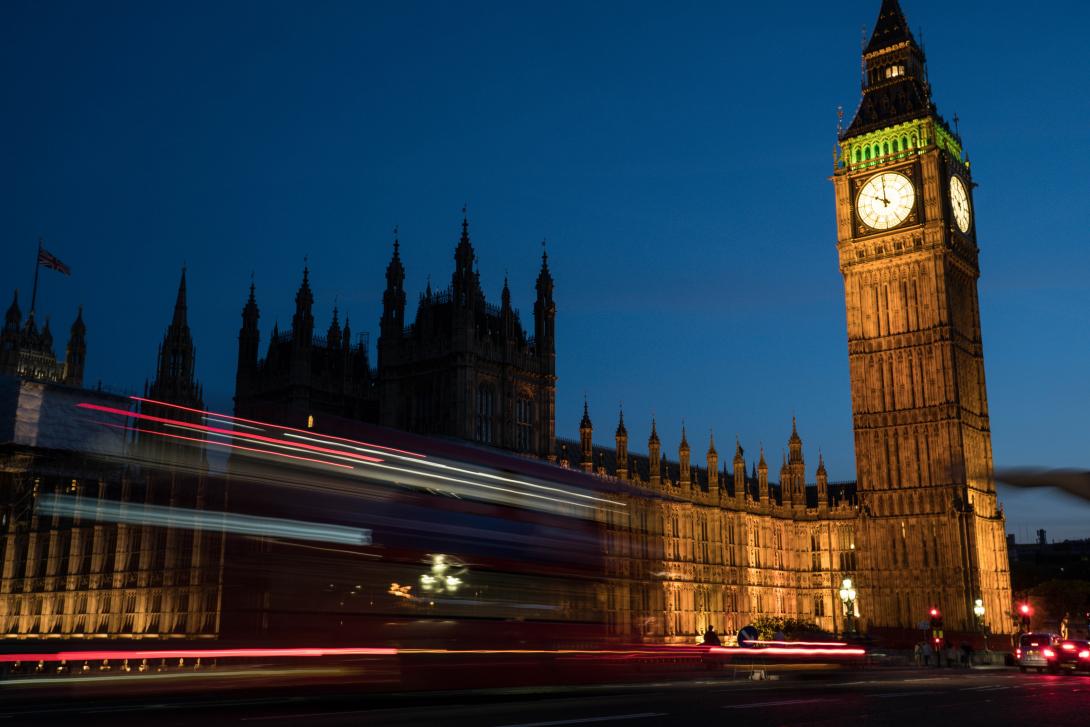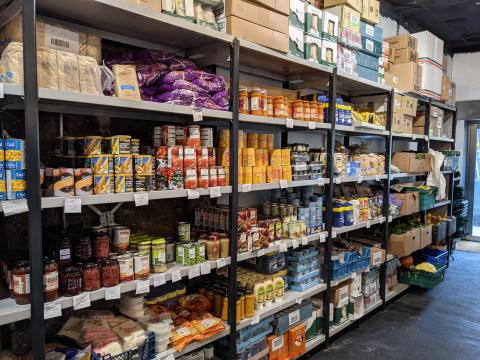02 February 2022
Food must be central to the levelling up agenda

The Government’s long-awaited Levelling Up White Paper has been published today. Here we take a first look at what it covers.
The overarching mission of levelling up is to address stark geographical inequalities, ensuring equal opportunity across the UK.
There are glimmers of hope in today’s white paper for those of us concerned about disparities in people's diets – it recognises the significance of affordable, accessible healthy diets and there are a small handful of exciting new announcements. But the reality is that a much greater policy focus on improving the food system will be needed if the Government is to successfully achieve the levelling up goals that it has set itself.
The upcoming Food Strategy White Paper and Health Disparities White Paper provide an opportunity for the Government to significantly raise the bar, to truly capitalise on the ambition of last year’s National Food Strategy, and to deliver the food system transformation that is so urgently needed for the success of the levelling-up agenda, and for our health and the health of the planet.
We have also published today an in-depth look at the data on regional patterns in dietary quality and food insecurity and the outcomes driven by these inequalities – which clearly demonstrates that reducing dietary inequalities and food insecurity will need to be central to the levelling up agenda.
The levelling up ‘missions’:
The white paper sets out 12 national ‘missions’ – goals for improving productivity and living standards, public services, local pride, and local governance, and reducing place-based inequalities in these areas – backed up by progress metrics, legal reporting requirements for Government departments, a new Levelling Up Advisory Board, and a few new policy announcements.
Achieving these missions will be impossible without ambitious action to improve the food system.
The missions on health, well-being, pride in place, education and living standards, are all particularly dependent on successful food system transformation:
Health:
By 2030, the gap in Healthy Life Expectancy between local areas where it is highest and lowest will have narrowed, and by 2035 Healthy Life Expectancy will rise by 5 years.
Well-being:
By 2030, well-being will have improved in every area of the UK, with the gap between top performing and other areas closing.
Pride in place:
By 2030, pride in place, such as people’s satisfaction with their town centre and engagement in local culture and community, will have risen in every area of the UK, with the gap between top performing and other areas closing.
Education:
By 2030, the number of primary school children achieving the expected standard in reading, writing and maths will have significantly increased. In England, this will mean 90% of children will achieve the expected standard, and the percentage of children meeting the expected standard in the worst performing areas will have increased by over a third.
Living standards:
By 2030, pay, employment and productivity will have risen in every area of the UK, with each containing a globally competitive city, with the gap between the top performing and other areas closing.
The health mission
We are pleased to see the White Paper put regional health inequalities in the spotlight. We know that poor diets are the biggest preventable contributor to ill health, so it is encouraging to see the White Paper acknowledging within the health mission the importance of ensuring that everyone can access a healthy diet, and confirming that the Government will be monitoring changes in obesity rates as part of their measures of success.
However, the policy detail setting out how Government plans to improve Healthy Life Expectancy and reduce regional health inequalities is still sorely lacking. The White Paper makes welcome new announcements on school food and social prescribing of fruit and vegetables, but these changes alone are of nowhere near the scale that is required to significantly shift outcomes.
The living standards and well-being missions
Despite the clear recognition of food in the health mission, food does not seem to feature strongly in the missions on living standards or well-being. Additionally, neither mission includes success metrics that capture measures of deprivation – poverty levels, for example, or food insecurity levels.
We know that food insecurity negatively impacts on educational and economic outcomes, physical and mental health. In children, food insecurity has been associated with poorer scores on happiness and life satisfaction, poorer social skills, more frequent housing problems (e.g. homelessness), and lower quality of life scores. It is clear that reducing food insecurity by boosting incomes and providing robust nutritional safety nets is fundamental to successfully achieving these levelling up missions.
We would like to see reducing food insecurity included as a core metric of success in the well-being and living standards missions.
The 'pride in place' mission
We know that our current food environments do not support healthy dietary choices, particularly in low-income areas. The density of fast food outlets is greater in more deprived areas. A good local food offer and culture could play a central role in supporting the levelling up 'pride in place' mission, but this potential is currently overlooked in the White Paper.
The education mission
Good food is central to school achievement – providing nutritious food that supports children’s learning. Free School Meals allow children at risk of food insecurity to focus on their studies rather than where their next meal will be coming from. Free School Meals have been shown to result in improved school attendance, concentration and academic performance. The value of school food is recognised in the health mission, including several welcome new announcements on school food accountability, but we would like to see school food’s wider benefits on learning recognised in the education mission too, and Free School Meal entitlement reviewed as a priority to ensure that no children at risk of going hungry at school are missing out.
Governance
We know that long-term policy change requires robust governance mechanisms to drive progress. It is encouraging to see the White Paper commit to new legal duties for government departments to report on their progress against the missions. These reporting requirements should be designed in such a way as to encourage effective cross-Government working on the missions.
The white paper also announces a new Levelling Up Advisory Group. It is important that people with lived experience of the issues being tackled through levelling up and people on low-incomes are invited sit on the advisory panel, and that the panel also includes experts in food/diets.
What next?
Today’s Levelling Up White Paper is welcome. We support its ambitions, but it is not yet clear that these are backed up by sufficient action and resources. Encouraging dietary shifts and addressing dietary inequalities more broadly, will need to be an essential part of the levelling-up agenda – food is central to many of the levelling up missions announced today.
Defra’s upcoming Food Strategy White Paper and OHID’s newly announced Health Disparities White Paper will need to provide much more of the detail – focussing their efforts on concrete policy proposals that will embed long-term change in the food system and help to rebalance the costs of healthy vs unhealthy food (breaking the Junk Food Cycle), whilst raising incomes and directly supporting those on lower incomes, so that everybody can afford and access a healthy diet.



